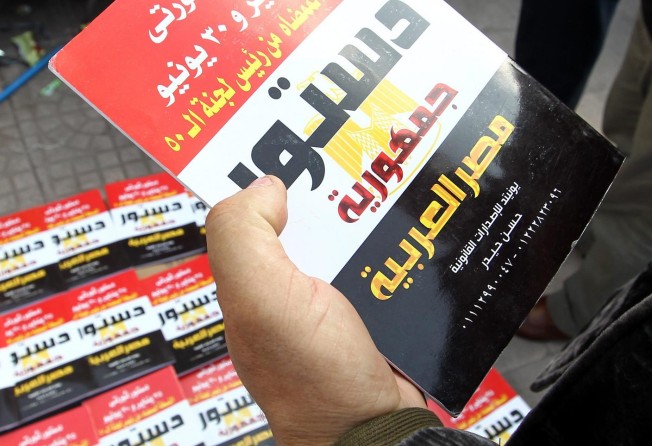Egypt's military chief faces first electoral test with constitution vote
Yes vote for new charter would boost military chief's standing as he considers presidential run

With a presidential run by Egypt's powerful military chief seeming more likely by the day, this week's constitution referendum is seen as a vote of confidence in the regime he installed last summer.
The charter is an overhaul of an Islamist-backed constitution adopted in December 2012 during the rule of Mohammed Mursi, the ousted president, and his Muslim Brotherhood. Drafted by a 50-member panel of mostly secular-leaning politicians, it criminalises discrimination, enshrines gender equality and guarantees a raft of freedoms and rights.
And crucially, the vote today and tomorrow provides the increasingly popular military chief, General Abdel-Fattah el-Sisi, with a first electoral test since he ousted Mursi on July 3. A comfortable "yes" vote and a respectable turnout would be seen as bestowing legitimacy, while undermining the Islamists' argument that Mursi remains the nation's elected president.
"It is not just a referendum on the constitution. It is on many things, including el-Sisi and the fight against violence by militants," said analyst and columnist Makram Mohammed Ahmed, who is close to the military. "I cannot imagine that a big 'yes' majority will automatically usher in a new legitimacy that will be swiftly recognised by the West, but it is a good constitution that must be given its due."
With the stakes so high, authorities are undertaking a massive security operation to protect polling stations and voters. The deployment involves 160,000 soldiers, including elite paratroopers and commandos backed by armoured vehicles and helicopters, according to officials.
More than 200,000 police officers will also participate. Troops are being stationed at airports to be flown to sites of possible attacks at short notice. And military aircraft will be used to monitor rarely used desert routes to major cities.
Snipers will be deployed close to polling stations. Provinces that see major outbreaks of violence will be sealed off from the rest of the country while the police and army move to contain it.
The charter adopted under Mursi won 64 per cent of the vote on a low turnout of about 30 per cent - partly caused by the then-opposition calling for a boycott of the vote.
This week, it is the Muslim Brotherhood and its backers who are urging a boycott. Their argument is that the entire process , is illegitimate, and they are planning mass demonstrations.
The referendum is Egypt's sixth nationwide vote since former president Hosni Mubarak stepped down nearly three years ago in a popular uprising triggered by deeply rooted grievances over suppression of freedoms, police brutality, and social and economic injustice. The five previous votes were probably the most free in Egypt's history.
By contrast, this week's vote will be held in a climate that, in many ways, is a throwback to Mubarak's days.
Many of the freedoms won by the 2011 uprising have been rolled back since the military coup, the brutal police tactics of Mubarak's 29-year rule are making a comeback and a climate of intolerance for dissent is growing, with liberal youth leaders thrown in jail.